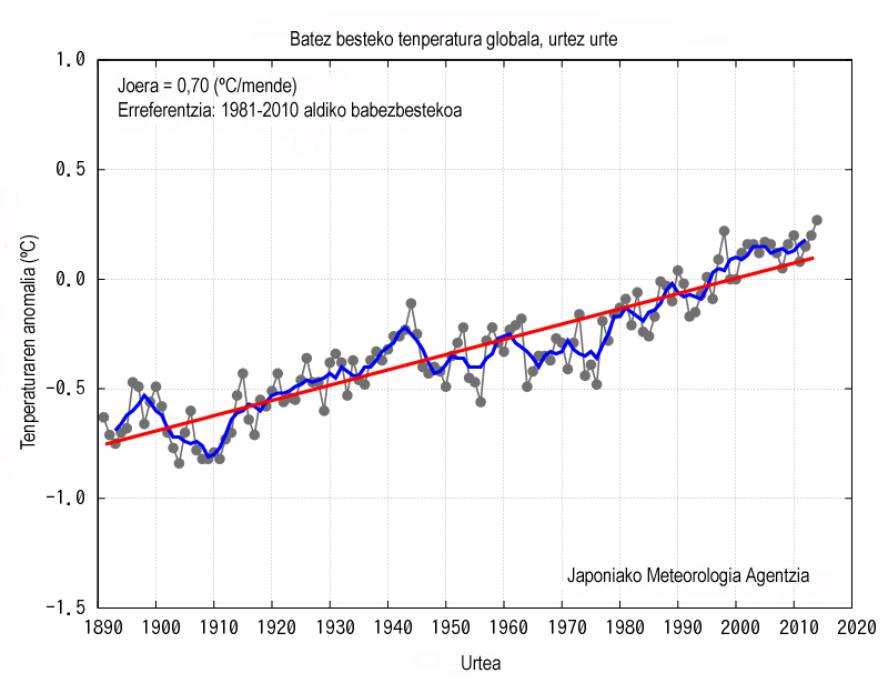2014 has been the hottest year documented

Through satellites and weather stations, these three entities conduct annual monitoring of surface and marine temperature, in collaboration with the British Hadley Center. Pending the final analysis of the latter, the other three entities have recently published the matching data.
The Japanese Meteorology Agency published its data on January 5. According to them, last year was the warmest since 1891, when they began collecting data. Specifically, the average temperature of the period 1981-2010 was 0.27 °C above the average in 2014 and XX. 0.63 °C above the average temperature of the century. If a longer time scale is observed, the data show an average temperature increase of 0.70°C over a century.
Until 2014, the warmest years were 2010, 2005 and 1998, respectively. However, in those years there was the phenomenon of El Niño in the Pacific, and the years of El Niño are usually hotter. However, 2014 has been a year without El Niño, so meteorologists consider the maximum as more representative.
After the Japanese Meteorology Agency, NASA and NOAA provided the data on 16 January. Its registration begins in 1880 and in this case also appears at the top vertex in 2014. The hottest 10 years are also not far away: All of them are from 2000 (except 1998), as data do not show.
In the following video, NASA has collected the evolution of Earth's average temperature between 1880 and 2014, with five-year series:
“This is the last in a series of hot years,” says Gavin Schmidt of NASA. Each year it can be affected by chaotic weather patterns, but behind long-term trends are the factors of climate change, especially human-emitted greenhouse gases.”
The Hadley center has not yet published the result of the average temperature of the entire planet. He has realized what corresponds to the UK, which also coincides with the data of the other three institutions.





